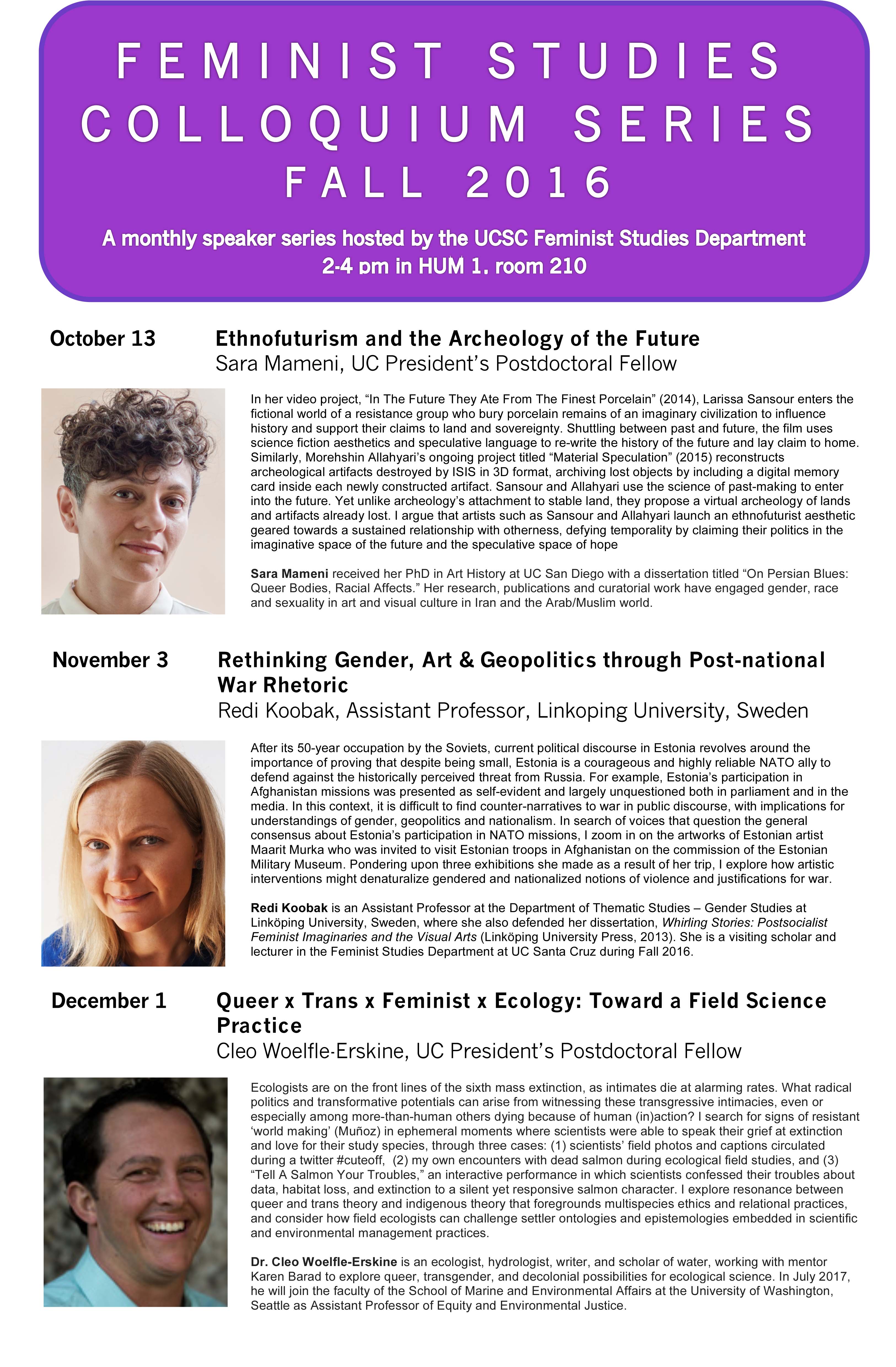Events

- This event has passed.
Feminist Studies Colloquium Series: Cleo Woelfle-Erskine
December 1, 2016 @ 2:00 pm - 4:00 pm | Stevenson Fireside Lounge
FreeShare
“Queer x Trans x Feminist x Ecology: Toward a Field Science Practice”
Cleo Woelfle-Erskine, UC President’s Postdoctoral Fellow
Ecologist are on the front line of the sixth mass extinction, as intimates die at alarming rates. What radical politics and transformative potentials can arise from witnessing these transgressive intimacies, even or especially among more-than-human others dying because of human (in)action? I search for signs of resistant ‘world making’ (Munoz) in ephemeral moments where scientist were able to speak their grief at extinction and love for their study species, through three cases: (1) scientists’ field photos and captions circulated during a twitter #cuteoff, (2) my own encounters with dead salmon during ecological field studies, and (3) “Tell A Salmon Your Troubles,” an interactive performance in which scientist confessed their troubles about data, habitat loss, and extinction to a silent yet responsive salmon character. I explore resonance between queer and trans theory and indigenous theory that foregrounds multispecies ethics and relational practices, and consider how field ecologist can challenge settler ontologies and epistemologies embedded in scientific and environmental management practices.
Dr.Cleo Woelfle-Erskine is an ecologist, hydrologist, writer, and scholar of water, working with mentor Karen Barad to explore queer, transgender, and decolonial possibilities for ecological science. In July 2017, he will join the faculty of the School of Marine and Environmental Affairs at the University of Washington, Seattle as Assistant Professor of Equity and Environmental Justice.
Feminist Studies Colloquium Series Fall 2016 Schedule:
October 13th: Sara Mameni, “Ethnofuturism and the Archeology of the Future”
November 3rd: Redi Koobak, “Rethinking Gender, Art & Geopolitics through Post-national War Rhetoric”
December 1st: Cleo Woelfle-Erskine, “Queer x Trans x Ecology: Toward a Field Science Practice”
